Збірна НУБіП України з футзалу перемагає «Політехнік»
Розпочалося друге коло змагань у групі «А» чемпіонату м. Києва з футзалу серед чоловічих студентських команд ЗВО. НТУУ «КПІ ім. Ігоря Сікорського» приймав НУБіП України.
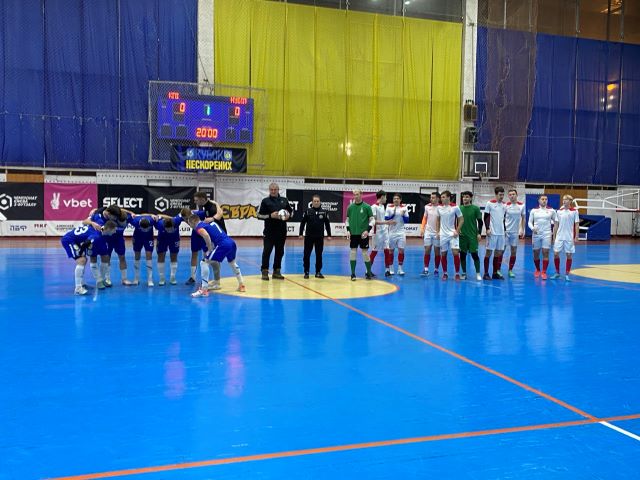
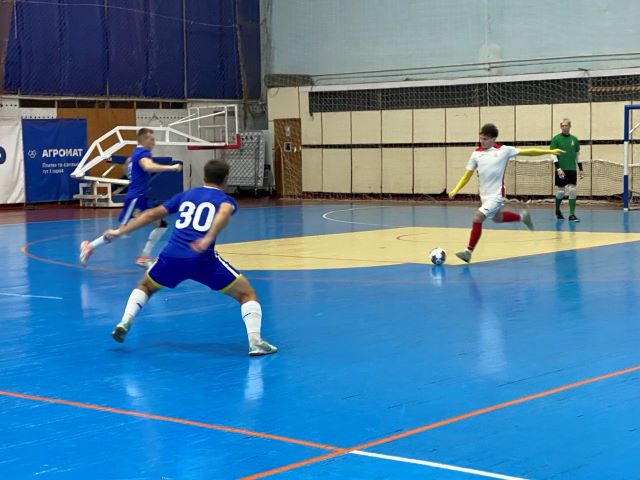
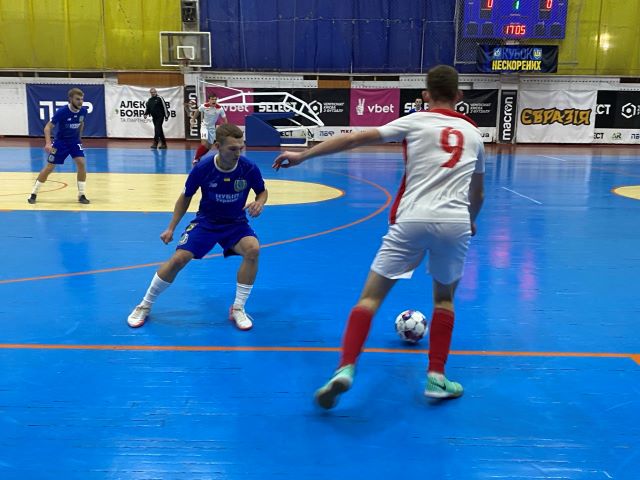
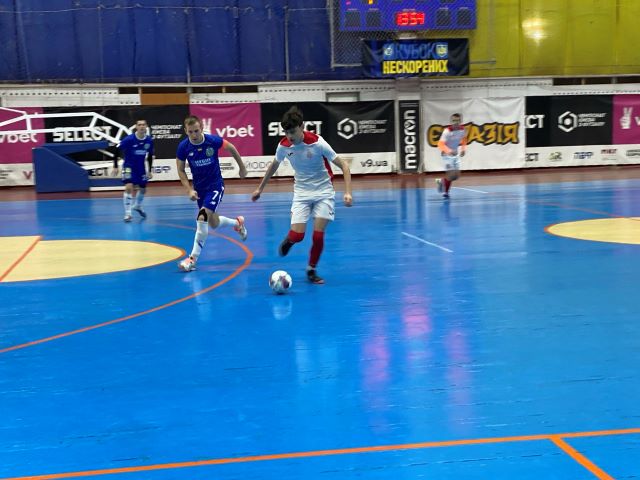

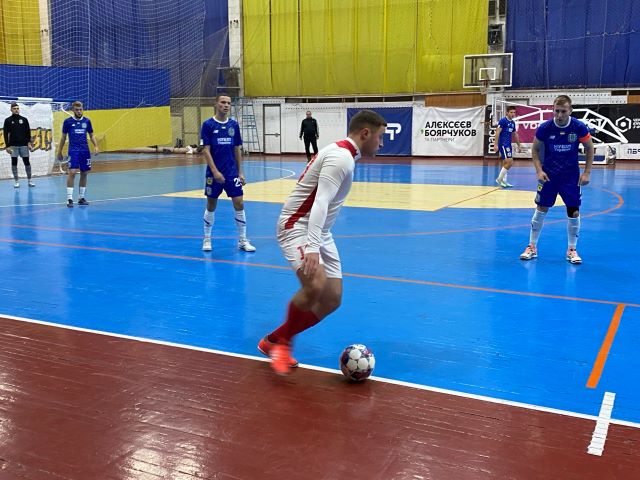


Господарі прагнули реваншу за поразку у першій зустрічі. Вони швидко почали атаку і за декілька хвилин мали пару гольових моментів, але наш воротар Ростислав Сидоренко (гуманітарно-педагогічний ф-т, спеціальність «Фізична культура і спорт») відбив усі удари. Згодом збірна НУБіП України перехопила ініціативу. Сергій Гибало (гуманітарно-педагогічний ф-т, спеціальність «Фізична культура і спорт») вийшов на ударну позицію і відкрив рахунок у грі.



Після забитого голу команди довго не могли вразити ворота одна одної, адже як і Ростислав Сидоренко так і Данило Кузіков впевнено стояли на лінії, відбиваючи усі атаки. На 16-й хвилині нашій команді вдалося перехопити м`яч і вийти два в один на ворота «Політехніка». Після пасу партнера забив у ворота Данила Кузікова Руслан Дударенко (гуманітарно-педагогічний ф-т, спеціальність «Фізична культура і спорт»). Отже, перевага збірної НУБіП України сягнула двох голів.
Після перерви КПІ замінили голкіпера і у ворота став Артем Рибак, але ситуація на полі не змінилася. Наша команда забила ще два швидких м’ячі. Перший гол реалізував Сергій Гибало, обігравши декількох гравців «Політехніка». Другий — Руслан Дударенко. На 25-й хвилині гри рахунок став 4:0 на нашу користь.





Господарі мали щось робити, аби врятувати ситуацію і вони випустили п’ятого гравця на майданчик. Використовуючи чисельну перевагу, господарі намагалися скоротити відставання, але наразили себе на контратаку. Наші хлопці перехопили передачу і Ярослав Прокопенко, намагаючись відбити м'яч невдало зрізав його у власні ворота. За рахунку 5:0 сподівання господарів на зміну ситуації здавалися марними, але на 29-й хвилині їм все-таки вдалося вразити наші ворота. Скориставшись незлагодженими діями наших гравців у захисті, Дмитро Суворов реалізував гольовий момент. Отже, один м’яч було відіграно. Ще через декілька хвилин Станіслав Хомич скоротив відставання до трьох м’ячів. Однак крапку у грі поставив Руслан Дударенко, замкнувши передачу партнера.
У підсумку — 6:2 на користь НУБіП України.
Микола КОСТЕНКО,
завідувач кафедри
фізичної культури і спорту